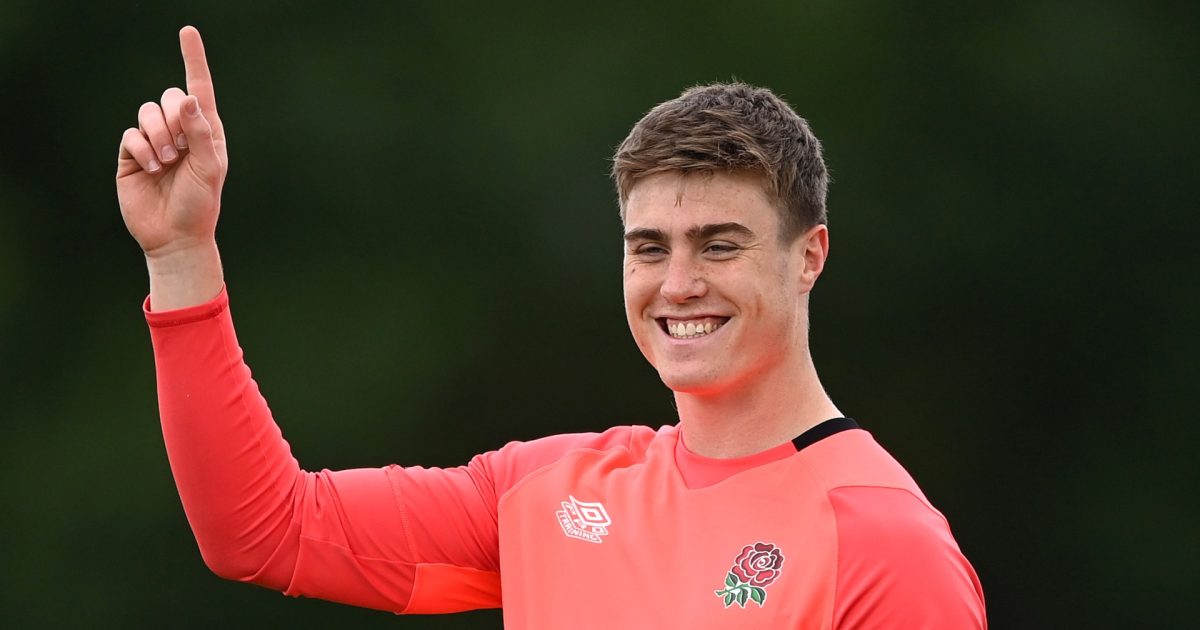'He now knows, especially having seen people like Jack Nowell'

Incoming Northampton director of rugby Phil Dowson has hailed the rapid progress of rookie winger Tommy Freeman. Restored to his club side in early April, he has started the last six Saints matches, five of them in the Gallagher Premiership where they have qualified for a semi-final this Saturday away to Leicester. The 21-year-old made his breakthrough at Northampton last season, making 14 league and European appearances after a fleeting taste during the interrupted 2019/20 campaign.
That resulted in England boss Eddie Jones taking an interest with numerous training camp call ups this term and while the youngster remains uncapped, head coach Dowson believes that Test squad exposure has rapidly accelerated Freeman’s progress.
“It’s always very good to get into a different environment where there are lots and lots of good players and lots and lots of good coaches, so Tommy going into the England environment was very positive,” explained Dowson when asked by RugbyPass to elaborate on the rookie’s emergence which has made him an option to tour Australia next month.
“He got to see how leading players in England prepare, how they review games, how they train in the gym, how they train on the pitch, different input from different coaches in terms of not exactly looking at what Sam Vesty might be looking at or Ian Vass might look at but getting different inputs from Martin Gleeson and Eddie Jones.
“It’s very valuable in terms of making him a more rounded player, giving him different experiences and showing him what it takes to be consistent at the top. I hope he has taken a lot of that on board.”
Rejected by Leicester at the age of 16 due to skills and a lack of size, Freeman went from 83kgs to 99 in a two-year period and while this added bulk took its toll on his knees, resulting in him getting an operation done last summer in Sweden, he has gone from strength to strength this season despite setbacks such as a hamstring issue at England training in Brighton at the end of January.
“He understands it and I think any of these lads who go from the environment of going from the academy into the first team are well versed in nutrition and weights and understanding how that affects them physically,” continued Dowson about the Freeman transformation witnessed at Northampton thanks to his England involvement.
“He has been very good. He has been very professional and is switched on. He now knows, especially having seen people like Jack Nowell and those guys who have been doing it for a long time. He will become more and more professional, understand his game more and more and understand his body more and more as he plays and he goes on that learning curve of playing week in week out.”
Elsewhere at his Tuesday media briefing, Dowson added: “Tommy has been class, he is a big man who can move quickly. It’s his game understanding as well, he reads the game, and he has got the ability to beat people, footwork, speed, power and ball on the floor and with his kicking ability to put ball in behind people. He’s a class act and a lovely guy as well in the environment.
“He is a top man who has been playing brilliant rugby and in all those tries he has scored (twelve in 13 Premiership appearances this season) he is benefiting from people like Fraser Dingwall, Dan Biggar and Alex Mitchell playing really well as well as George Furbank so that backs unit is providing Tommy opportunities.”
Northampton will hope that the likely selection of Freeman to start the Premiership semi-final versus Leicester will be a good omen as the youngster didn’t play in the two beatings the Saints suffered against the Tigers this season (26-55 at home and 20-35 away).
“We have taken a hiding twice and they have been chastening experiences, particularly a local derby, and we have to learn the lessons from that,” insisted Dowson, who takes over as director of rugby from Chris Boyd at the end of the season.
“It is as clear as day in terms of getting our game on the field and dealing with a very aggressive and very dominant performances. How we manage to get ourselves in the game and how we manage to get our game on the pitch is integral to the success of our game plan.”














































































